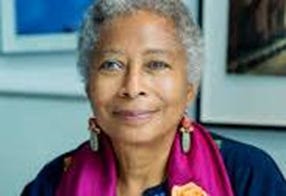Accomplished Black women in academia often contend with questioning, invalidation, or outright hostility when inhabiting the full authority of their expertise. Insidious tactics include disregarding titles, conferring undeserved credentials upon others, or implying hubris around claiming hard-won PhDs imply undesirability around bold, direct Black female scholar identities. This manifests the "shame of brilliance" whereby women, especially women of color, feel pressured to downplay talents to avoid social sanctions or threatening historical hierarchies invested in limiting their influence.
Writer Alice Walker explores these dynamics through the journey of Celie in The Color Purple, whose spirit and talents gradually become obscured under abuse and oppressive messaging. Yet as Celie finds supportive community to validate her worth and gifts, she inhabits her identity with expanding delight and livelihood no longer hidden away. This parallels the struggles of contemporary Black women scholars who contend with myriad overt and covert attempts to mute the empowered expression of their full authority and passion. However, surrounding oneself with affirmative professional mentors (Johnson-Bailey 2015) and colleagues can slowly transform internalized doubt into courageous conviction. Together, Black women academics can build solidarity to lift voices once compelled into fearful silence.
The remainder of this article explores these themes of muting versus empowerment more deeply through a womanist lens. Black women academics often struggle against what Dr. Chanequa Walker-Barnes has termed “pathological Whiteness.” In this instance, “White” is a metaphor for socio-economic power.
Scholar Moya Bailey coined the term "misogynoir" to capture the particular anti-Black misogyny that Black women academics frequently contend with in the form of questioning their expertise, talking over them in meetings, appropriating their work without credit, or imposing other emotional labor (Bailey, 2014).
Yet, surrounding oneself with community can help transform inner narratives of unworthiness into claiming one's authority with courage, as we will explore. Resources like Walker-Barnes’ “Woke Preachers” clip, for the professional wrestling with navigating oppressive spaces provide encouragement through a shared journey (Walker-Barnes, 2023).
Reclaiming Your Radiance in Academia's Hostile Environments
Like Celie, you may feel immense pressure to mute your brilliance to squeeze into limiting boxes within academia’s rigid hierarchies. Despite advanced qualifications, visible talents, and meaningful contributions, the presumed undesirability of confident Black womanhood elicits barriers to you fully inhabiting your expertise with assurance.
Genteel notions of appropriate scholar identities exclude bold, direct speech; passionate investment in one’s research; and refusal to minimize racial harm. Assertively claiming excellence amid White and male gatekeepers risks perceptions of you as an upstart or interloper. Thus, you shrink your boundary-breaking ideas into palatable compromises, soften the sharp challenge of your critical analysis, handing your light to “kinder” colleagues. But now is the time for courage.
Preserving Your Passion on the Margins
Like Celie cursing Albert, moments of expressed frustration at racist impediments to your advancement may get coded by colleagues as undesirable aggression. Labeled abrasive or difficult, you face unsympathetic distance rather than inclusion. Whether appropriating your words without credit, or making undermining comments about you in public spaces, the reticence to accept your proven competence can slowly erode your sense of scholarly authority.
Over time, the cumulative effects of constrained opportunity accumulate into traumatic wounds of lost human dignity (Crenshaw, 2016). So you equivocate writing risky projects, avoiding head on confrontation with injustice. Better to be gentle than exiled.
Finding Wholeness Through Community
Yet segregation into safe topics can distance you from your purpose. Instead, surround yourself with others who nurture the conditions for your gifts to emerge, listening with care, affirming the light within you. Bond with influential mentors who lift unheard voices. Though academia promotes hyper-individual advancement, collective solidarity strengthens individuals against dehumanization more than isolated striving (Lorde, 2018).
This sisterhood offers a balm for wounds so your sharpened analysis pierces privileged assumptions. Together, we can amplify research opportunities and create spaces where the full chorus of Black women’s brilliance harmonizes without limitation. You have profound contributions to share with the world, if only you can silence shame, embrace cooperative power, and speak the truth of your visions.
Now is the time. Rise with courage, beloveds; we all need your light.
References
Bahlieda, Robert (2015). “The Legacy of Patriarchy,” in JSTOR, Counterpoints, Vol. 488, THE DEMOCRATIC GULAG: Patriarchy, Leadership & Education (2015), pp. 15-67 (53 pages)
Bailey, M. (2021). “Misogynoir Nearly Killed Megan Markle”
Bailey, M. (2014). “Misogynoir in Medical Media: On Caster Semenya and R. Kelly.” Catalyst: Feminism, Theory, Technoscience, 2(2), 1-31.
Lindsay-Dennis, L. (2015). “Black Feminist-Womanist Research Paradigm: Toward a Culturally Relevant Research Model Focused on African American Girls,” SAGE, 46(5), 506-520
Butler, A. (1989). “Still in Chains: Black Women in Western Prisons, 1865-1910,” JSTOR, Vol. 20, No. 1 (Feb., 1989), pp. 18-35 (18 pages)
Collins, P. H. (2002). Black Feminist Thought: Knowledge, Consciousness, and the Politics of Empowerment. Routledge.
Crenshaw, K. (2016). Race, Gender, Inequality and Intersectionality. YouTube, 29 Sept. 2016, www.youtube.com/watch?v=ViDtnfQ9FHc . Accessed 4 Mar. 2023.
geniusawakening.com. (2019). What is a Special Soul? Genius Awakening. https://geniusawakening.com/what-is-a-special-soul/
Hooks, B. (2015). Ain’t I a Woman: Black Women and Feminism. Routledge.
Hooks, B. (2004). A Will to Change: Men, Masculinity and Love, Washington Square Press.
Hooks, B. (1989). Talking Back: Thinking Feminist, Thinking Black, South End Press.
Irvin-Painter, N (2012). ”The Expanding Definition of Whiteness,” Big Think.
Johnson-Bailey, J. (2015). ”Mentoring While Black & FemaleThe Gendered Literacy Phenomenon of Black Women Mentors,” New Prairie Press.
Levine, M. P. (1977). Black Culture and Black Consciousness: Afro-American Folk Thought from Slavery to Freedom. Oxford University Press.
Lorde, A. (2018). Sister Outsider: Essays and Speeches. Penguin Classics.
Napier, W. (1998). African American Literary Theory: A Reader. NYU Press.
Walker, A. (1982). The Color Purple. Harcourt Brace Jovanovich.
Walker, A. (1983). In Search of Our Mothers’ Gardens: Womanist Prose. Harcourt Brace Jovanovich.
Walker-Barnes, C. (2023). Dr. Chanequa Walker-Barnes [YouTube Channel]. Retrieved from https://www.youtube.com/@drchanequawalkerbarnes




